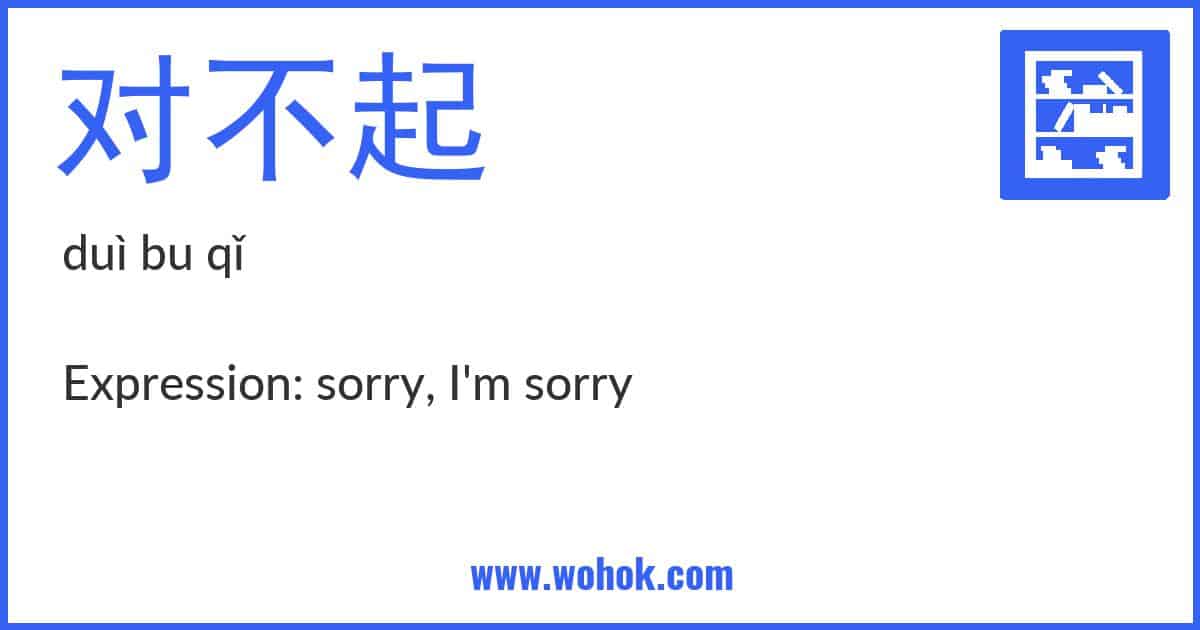The Chinese word 对不起 is often translated to “sorry” or “excuse me” in English. It is commonly used to express apologies or regret for a mistake or wrongdoing, such as bumping into someone on the street or being late for an appointment. It can also be used in more serious situations, such as when apologizing for a major mistake. In Chinese culture, it is considered polite and respectful to apologize when appropriate, and using 对不起 is a common way to do so.
Translation
Expression: sorry, I’m sorry
Pronunciation
Example Sentences
| Chinese | Pinyin | Engish |
|---|---|---|
| 对不起,我迟到了 | duì bù qǐ,wǒ chí dào le | Sorry, I’m late |
| 对不起,我不明白你的意思 | duì bù qǐ,wǒ bù míng bái nǐ de yì si | Sorry, I don’t understand what you mean |
| 对不起,我打扰了你 | duì bù qǐ,wǒ dǎ rǎo le nǐ | Sorry to bother you |
| 对不起,我忘了你的生日 | duì bù qǐ,wǒ wàng le nǐ de shēng rì | Sorry, I forgot your birthday |
| 对不起,我误解了你的意图 | duì bù qǐ,wǒ wù jiě le nǐ de yì tú | Sorry, I misunderstood your intentions |
| 对不起,我没有听清楚 | duì bù qǐ,wǒ méi yǒu tīng qīng chǔ | Sorry, I didn’t hear clearly |
| 对不起,我不该那样说 | duì bù qǐ,wǒ bù gāi nà yàng shuō | Sorry, I shouldn’t have said that |
| 对不起,我没有意识到我的错误 | duì bù qǐ,wǒ méi yǒu yì shí dào wǒ de cuò wù | Sorry, I didn’t realize my mistake |
HSK
对不起 is part of HSK Level 1 in both HSK 2.0 and HSK 3.0.
Learning Card


